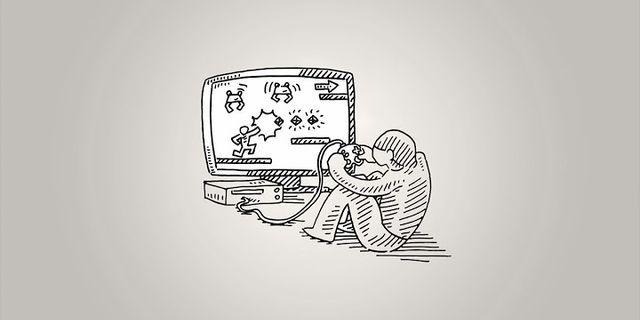We have detected that you are using an Ad Blocker. Show We have sent a message to the email address you have provided, . If this email is not correct, please update your settings with your correct address. The email address you provided during registration, , does not appear to be valid. Please update your settings with a valid address before to continue using PracticeUpdate. Only registered members have full access to PracticeUpdate content. American Academy of Pediatrics Recommends No Fruit Juice for Children Under 1 YearPosted May 30, 2017 & filed under Children's Oral Health and Fluoride, Fluoride, Oral Health, and Access to Care. On May 22, 2017, the American Academy of Pediatrics (AAP) released new juice recommendations saying that the fruit juice holds no nutritional value for children under the age of 1 and accounts for the rising rates of obesity and concerns about dental health, based on evidence accumulated over recent years. The statement, “Fruit Juice in Infants, Children, and Adolescents: Current Recommendations,” to be published in the June issue of Pediatrics, states that 100-percent fresh or reconstituted fruit juice can be a healthy part of the diet of children older than 1 year when consumed as part of a well-balanced diet. The amount of juice each day, however, should be limited depending on a child’s age. The recommendations are briefly explained in this video and press release from the AAP, and in more detail in the policy statement. Some of the other recommendations include:
In addition to limiting sugary beverages, it is important for children to drink water with fluoride and caregivers should help young children practice brushing to make it a good experience. In order to be healthy, kids need to have healthy teeth! Parents should avoid offering fruit juice to infants under the age of 1 year, unless advised by a doctor, as it provides “no nutritional benefit” and may harm their health. This is the according to new recommendations from the American Academy of Pediatrics.
Previous guidelines on fruit juice consumption from the American Academy of Pediatrics (AAP) – published in 2001 – recommended that fruit juice should not be given to infants under the age of 6 months. Sixteen years later, the AAP have extended this time frame, based on a wealth of evidence that suggests that fruit juice may do more harm than good in the first 12 months of life. The new policy statement was recently published in the journal Pediatrics. When you see a bottle stating that the contents are “100 percent fruit juice,” you might assume that the beverage is a healthful alternative to whole fruits, but this is not the case. While some fruit juices are naturally high in vitamins and minerals, including vitamin C and potassium, they are also high in sugar and low in other important nutrients, such as fiber. In fact, a 2016 study found that some fruit juices contain as much as 2 teaspoons of sugar in a 100-milliliter serving. As such, concerns have been raised about the health effects of fruit juice intake among children. One study published in 2015 cited fruit juice as one of the “biggest culprits” for dental erosion, and other research has linked fruit juice intake to childhood obesity. The new AAP policy statement reflects these concerns by presenting a number of recommendations to limit children’s fruit juice consumption. Based on the evidence to date, the AAP conclude that “fruit juice offers no nutritional benefits for infants younger than 1 year,” and, therefore, it should not be offered to them “unless clinically indicated.” “Parents may perceive fruit juice as healthy, but it is not a good substitute for fresh fruit and just packs in more sugar and calories,” says statement co-author Dr. Melvin B. Heyman, an AAP fellow. “Small amounts in moderation are fine for older kids, but are absolutely unnecessary for children under 1.” For toddlers aged 1 to 3 years, the AAP recommend consuming no more than 4 ounces of fruit juice daily, while children aged between 4 and 6 years should consume no more than 4 to 6 ounces per day. Fruit juice intake should be limited to 8 ounces per day for children and adolescents aged 7 to 18 years, say the AAP. Additionally, the guidelines state that toddlers should not be given fruit juice in bottles or “sippy cups” that allow them to drink freely throughout the day. These drinking apparatuses fuel excessive tooth exposure to the juice, which can lead to tooth decay. What is more, the AAP “strongly discourage” the consumption of unpasteurized juice products for children of all ages, and grapefruit juice should be avoided for children taking any medications that are metabolized by the enzyme CYP3A4, due to its potentially harmful interactions. Finally, the AAP state that children should be encouraged to eat whole fruits, and they should be educated about the benefits of whole fruit consumption over fruit juice. “We know that excessive fruit juice can lead to excessive weight gain and tooth decay,” says statement co-author Dr. Steven A. Abrams, also a fellow of the AAP. “Pediatricians have a lot of information to share with families on how to provide the proper balance of fresh fruit within their child’s diet.” Learn how drinking too much soda may increase children’s risk of fatty liver disease. Does AAP recommend juice?Juice should not be introduced to infants before 1 year unless clinically indicated. Daily intake should be limited to 4 ounces in toddlers ages 1-3 years, 4-6 ounces for those 4-6 years. For those 7-18 years, limit juice intake to 8 ounces or 1 cup of the recommended 2-2½ cups of fruit servings/day.
What is the Academy of Pediatrics recommendation for juice intake?The intake of juice should be limited to, at most, 4 ounces/day in toddlers 1 through 3 years of age, and 4 to 6 ounces/day for children 4 through 6 years of age. For children 7 to 18 years of age, juice intake should be limited to 8 ounces or 1 cup of the recommended 2 to 2.5 cups of fruit servings per day.
What juice is good for a 12 month old?It's okay to offer some juice in moderation, but make sure it's 100 percent juice (such as apple, orange, cranberry or pomegranate), which can provide some nutrients to a busy, picky toddler. Remember, too, that your tot shouldn't be toting a sippy cup filled with juice all day long.
Which juice is best for 1 year baby?Types of juice you can give to your child. 100 percent pure fruit juice.. 100 percent pasteurized.. mild flavors; apple or pear are good ones to start with.. no sugar added.. |





















